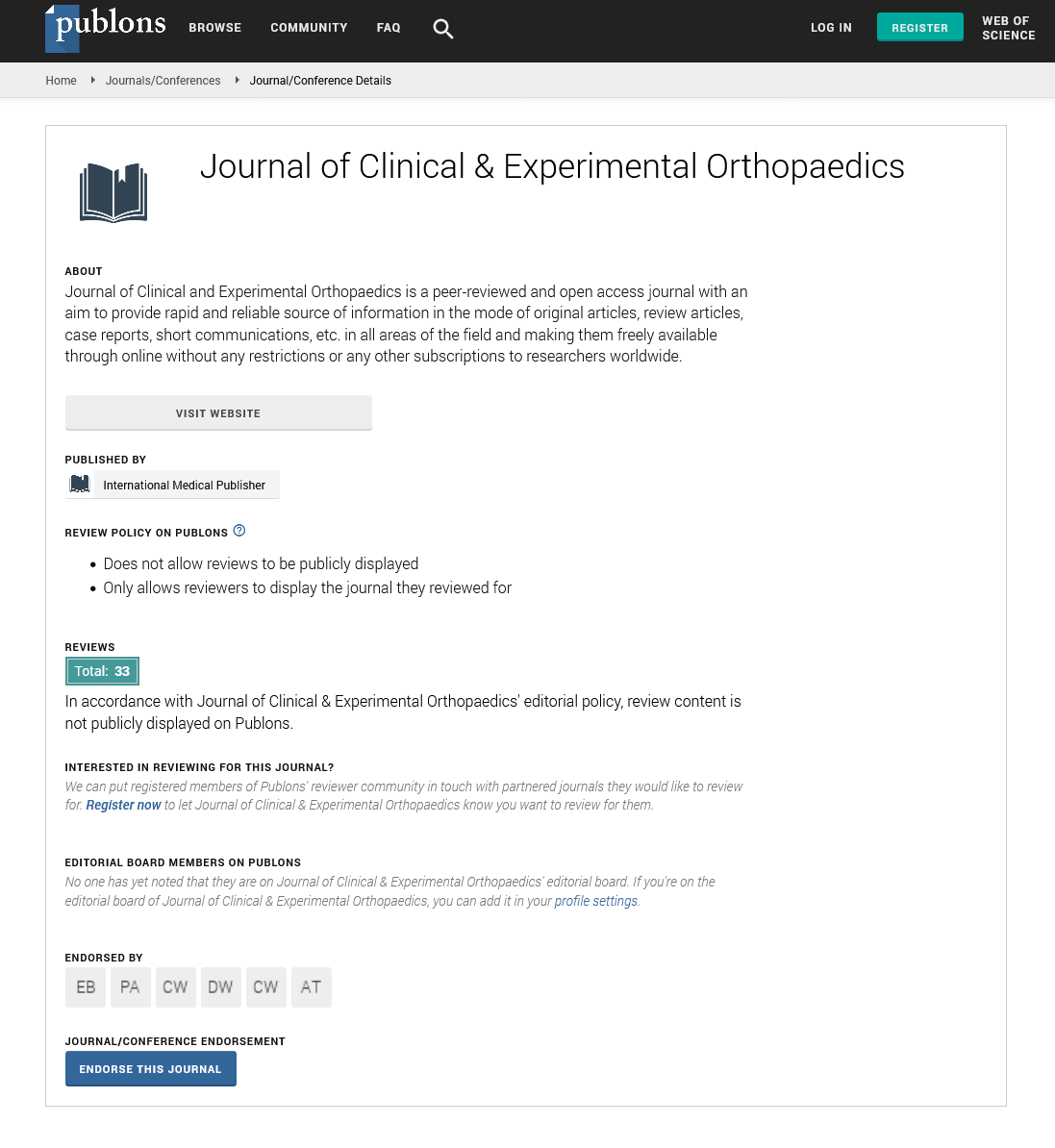ISSN : ISSN: 2471-8416
Journal of Clinical & Experimental Orthopaedics
Patients views and experiences of their participation in managing non-specific low back pain
European Conference on Orthopedics and Osteoporosis
November 29-30 , 2018 Amsterdam , Netherlands
Wafa AlKhatrawi, Iain D Beith and Sheila Kitchen
Ministry of Health, Saudi Arabia St Georges University of London /Kingston University, UK Kings College London, UK
Posters & Accepted Abstracts: J Clin Exp Orthop
Abstract
Background: Low back pain (LBP) is a common and debilitating clinical problem often seen by physiotherapists. Studies suggest that involving patients in making decisions about managing their illnesses may help to improve patients’ adherence and self-management. It is largely unknown why patients with LBP adopt certain decisional roles when making treatment choices. Moreover, qualitative studies addressing experiences of LBP patients’ involvement in decision making and more specifically, those in Arabian cultures such as Saudi Arabia is severely lacking. Aim: To investigate patients’ experiences of physiotherapy for non-specific LBP, their perceptions of the appropriateness of participation in decision making and information provision and reasons for these preferences. Methods: Seven focus groups of patients with LBP (n=27; 2-6 patients in each group) were included in this study. This study was conducted in Riyadh, Saudi Arabia, using a semi-structured interview technique with open-ended questions. Analysis: Framework analysis was used to analyse data derived from the focus groups. Results: Patients considered their needs for clinical information to be more important than their actual participation in the management process. They wanted more information that they could use to self-manage their LBP condition and to avoid further complications. Their perception was that they lacked the professional knowledge and clinical skills to participate in decision making, in addition to time constraints during physiotherapy visits appeared to be patients’ main reasons for a limited desire for participation in clinical settings. Conclusion: Patient self-efficacy was proposed as an essential element of patients’ involvement in decision making. Patients' views on making treatment choices may reflect their perceived self-capabilities to take part in decision making in clinical settings. The findings provide information on which future studies can be performed to investigate patient perceived selfcapabilities to cope with their LBP condition in relation to their preferences for participation, treatment outcomes and the long term self-management of LBP
Biography
Wafa AlKhatrawi has expertise in Physiotherapy for more than 20 years in Saudi Arabia. She was graduated in 1996 as a Certified Professional Physiotherapist and then completed her Masters’ degree in Pediatric Physiotherapy, in 2004. She received her PhD from King’s College London, London, United Kingdom (2013) with an interest in collaborative clinical decision making and patient centered care.
E-mail: wafmalik@yahoo.com
Google Scholar citation report
Citations : 161
Journal of Clinical & Experimental Orthopaedics received 161 citations as per Google Scholar report
Journal of Clinical & Experimental Orthopaedics peer review process verified at publons
Abstracted/Indexed in
- Google Scholar
- China National Knowledge Infrastructure (CNKI)
- Directory of Research Journal Indexing (DRJI)
- WorldCat
- Publons
- Geneva Foundation for Medical Education and Research
- Secret Search Engine Labs
Open Access Journals
- Aquaculture & Veterinary Science
- Chemistry & Chemical Sciences
- Clinical Sciences
- Engineering
- General Science
- Genetics & Molecular Biology
- Health Care & Nursing
- Immunology & Microbiology
- Materials Science
- Mathematics & Physics
- Medical Sciences
- Neurology & Psychiatry
- Oncology & Cancer Science
- Pharmaceutical Sciences
